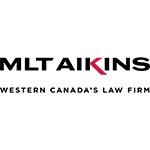Date: Tuesday, September 24
Time: 8:30 am - 4:00 pm
Cost: $395 + Tax
If you are wanting to register for an EOEP course, without registering for the full Convention, please email registration [at] abmunis.ca.
All courses are held on the same day, at the same time. Please only register for one session.
**Please note, this course is only applicable for elected officials and administration representing an Alberta municipality.
EOEP - Council's Role in Public Engagement
Municipal councils are elected to make decision on behalf of citizens. However, in order to govern effectively and make decisions that are in the best interest of the diverse communities within municipalities, councils must be willing to consider the community’s perspectives and input when making decisions. The EOEP’s Council’s Role in Public Engagement course will provide an overview of the various ways municipalities can engage with citizens, how public input can be integrated into decision-making, the dangers and limits of involving the public in municipal decisions, and the importance of engagement in supporting sustainable community development. Spend the day learning these concepts:
- Understand public engagement policy and framework as well as the role of the elected official and the different types of decision making
- Differentiate between what is and isn’t public engagement
- Recognize what systems thinking and public engagement are about
EOEP – Council’s Role in Land Use and Development Approvals
Land use planning has evolved over many years and can be considered a long term, ongoing process that includes planning itself, as well as project delivery and ongoing monitoring and evaluation. Land use planning aims to improve the effectiveness of public services in meeting people’s needs, and to support the development of local communities and to improve the quality of life for all.
Councillors play both an initiating and facilitating role in the development of community plans, focused around the following concepts:
- Seek the participation of and encourage the public to express their views and take those views into account as part of the land use planning process
- Identify long-term objectives to improve the social, economic and environmental well-being of the community
- Identify actions and functions to meet these objectives including those related to the planning, provision and improvement of public services
- Consistently review the progress of the municipality’s plans and provide direction to change course as local context evolves
- Understand the statutory link between the municipality’s plans and the tools in place to implement those plans
- Understand the statutory link between the municipality’s plans and the tools in place to implement those plans
EOEP - Effective Meetings
The key work of any municipal council is done in the setting of a properly called meeting. It is through the process of deliberation (debate) that decisions are made… from approving land use to creating a new bylaw or in response to your unique public concerns. The effectiveness of a municipal council is rooted in the successful work through a meeting format and to a large degree, the effectiveness of each council member is rooted in the same. The EOEP's Effective Meetings course will help participants develop the skills, attitudes, and knowledge to significantly enhance meeting participation and effectiveness.
This course builds on highly rated education sessions at recent ABmunis and RMA conventions by providing a full day interactive learning experience that will help participants:
- Examine how rules of order and proper procedure enhance your meetings
- Recognize the principles and rules of healthy debate
- Identify action items that you can implement at your next council meeting
As an elected official, you spend a good chunk of your life in meetings. This course provides tools, tips, and ideas to make your meetings work best!
Legal Seminar - Facilitated by Reynolds Mirth Richards and Farmer LLP
In this session we will review and discuss a number of recent Court decisions, from all levels of Court, which seem to reveal a judicial shift toward imposing greater responsibility on municipalities.
We will discuss how those decisions impact the protection afforded by the statutory defences municipalities have historically relied upon and what this means from a practical perspective in the provision of services to residents and visitors.
















